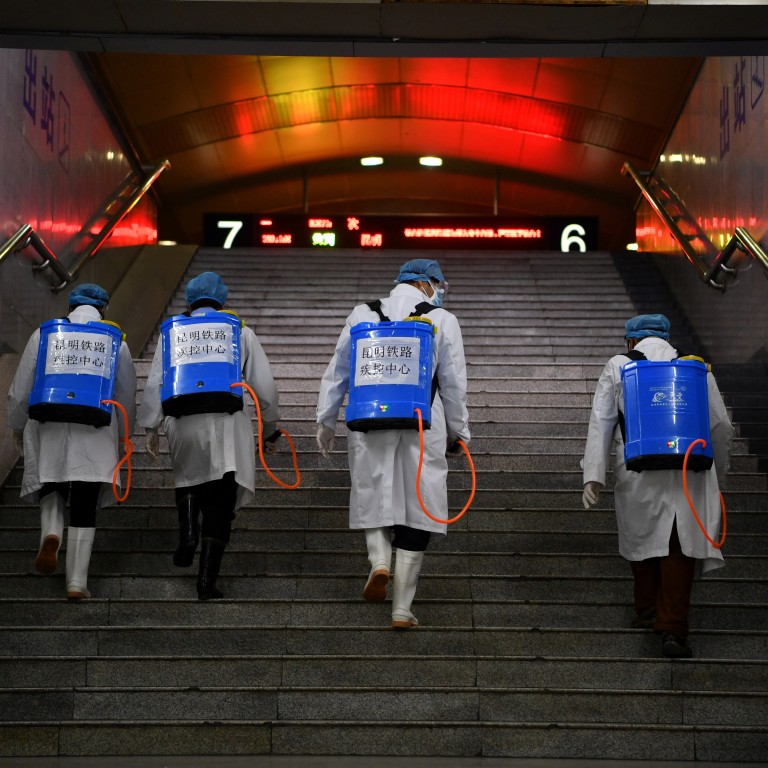China’s contribution to global economic growth is much greater than is generally realised and those who seem to delight in finding fault with the world’s second-largest economy (over the coronavirus, for example) would do well to bear this in mind. Where China goes, we all go.
What matters is not so much the size of China’s economy as its continuing high growth, which has boosted its
contribution to global growth when other leading economies are lagging badly.
As Changyong Rhee, director of the Asia and Pacific department at the International Monetary Fund, noted recently at the Foreign Correspondents’ Club of Japan in Tokyo, Asia contributed 70 per cent of global growth in 2019, of which China alone accounted for 41 per cent, against India’s 13 per cent and Asean’s roughly 10 per cent. This puts the US and Europe (at around 10 per cent each) in the shade.
Standard & Poor’s chief Asia-Pacific economist Shaun Roache expects the coronavirus to slow Asian growth from 5 per cent to 4.3 per cent this year. He also said growth will drop by a percentage point or so in Hong Kong and Singapore, and by 0.5 points in Australia, South Korea, Taiwan and Thailand.
Despite China’s continuing role as a growth dynamo for the region, many commentators continue to heap
criticism on Chinese government policies while looking to Beijing for fresh economic
stimulus to bolster slowing rates in the US, Japan, Europe and elsewhere.
Such stimulus is likely be forthcoming but, as Rhee pointed out, this time, China will probably focus more on boosting its domestic social safety net (including
stressed health services) rather than imports.
Everyone will suffer if China’s growth rate slows for longer than the first quarter, as credit rating agency Moody’s and
others have suggested. It is in the interests of the world to offer China all the help (medical, logistical and otherwise) it can, rather than criticise from the sidelines.
Containment of the coronavirus will vie with the need to get economies moving again, including
international linkages. If ever there was a need for multilateral agencies such as the World Bank and others to coordinate relief efforts, it is now – but there is precious little evidence of that yet.
Covid-19 is scary but the understandable tendency towards overreaction or panic has been transposed into a kind of
malicious glee in predicting China’s economic collapse as a consequence.
In all likelihood, China will win the battle against the coronavirus, either as a result of the
dramatic lockdown of its cities or because the virus becomes less virulent. China will probably snap back into full production sooner than appears likely in the prevailing gloom.
At that point, other threats to the global economy will re-emerge. No mask or blindfold will offer protection against these.
First and foremost is the disruption caused by Donald
Trump’s trade wars, not only to global trade but also to manufacturing output and investment (not to mention business confidence). All these slowed markedly in 2019 before the coronavirus delivered its blow.
The “virus” of
protectionism afflicting Trump’s America has, meanwhile, spread to other leading economies. There is no cure for this; the world’s immune system has to fight it off to restore healthy attitudes towards openness in trade and commerce.
Much has been written about disruptions to supply chains caused by natural or man-made disasters but “trade diversion” gets less attention. If China is forced to buy more from the US under the
phase-one trade deal, it will buy less from Europe and elsewhere.
As IMF managing director Kristalina Georgieva told the G20 meeting in Riyadh, “bilateral managed trade arrangements have the potential to distort trade and investment while harming global growth. In fact, our estimates suggest that the managed trade provisions cost the global economy close to US$100 billion”.
On top of all this, there is the addiction to credit-fuelled personal consumption which has propped up most major economies where interest rates are at historic lows. There is also the
mountain of corporate debt (China included) where rollovers due this year could create a severe debt crunch.
As Rhee observed, the “low for longer” interest rate regime which now seems to be a given for many of the world’s leading economies “can bring financial stability concerns” – not least for banks, a threat that looks especially serious for the legions of smaller Japanese banks.
Japan’s economy has entered territory where the risk of a technical recession (two consecutive quarters of contracting GDP) is very real. The Japanese media have been full of alarm stories about China and the coronavirus, but Japan’s growth slump is largely home-grown after an untimely tax hike.
The bottom line is that once the coronavirus scare begins to abate and commentators begin to look beyond the doomsday scenarios, they will find plenty to lose sleep over. And it will not be easy to blame China for the underlying malaise in the global economy.
Anthony Rowley is a veteran journalist specialising in Asian economic and financial affairs


